
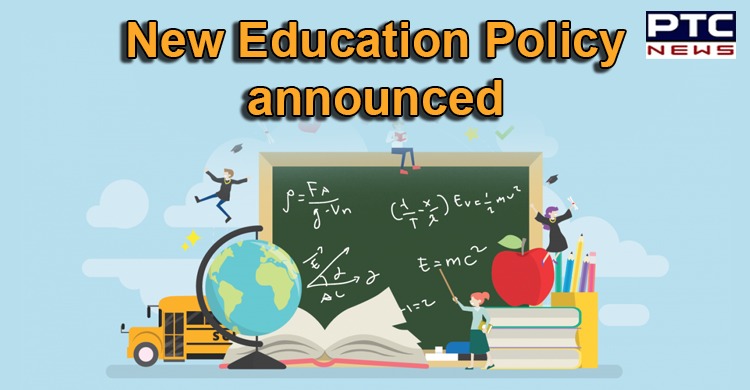
New Education Policy 2020: Major changes in school and higher education, All you need to know
Union Minister Prakash Javadekar stated that Cabinet under the leadership of Prime Minister Narendra Modi has given approval to new education policy for the 21st century. "It is important, as for 34 years there were no changes in the education policy," he added.
 Cabinet has approved National Education Policy 2020; Major reforms in higher education include a target of 50 percent gross enrollment ratio by 2035 and provision for multiple entry/exit, the Government of India stated.
Cabinet has approved National Education Policy 2020; Major reforms in higher education include a target of 50 percent gross enrollment ratio by 2035 and provision for multiple entry/exit, the Government of India stated.
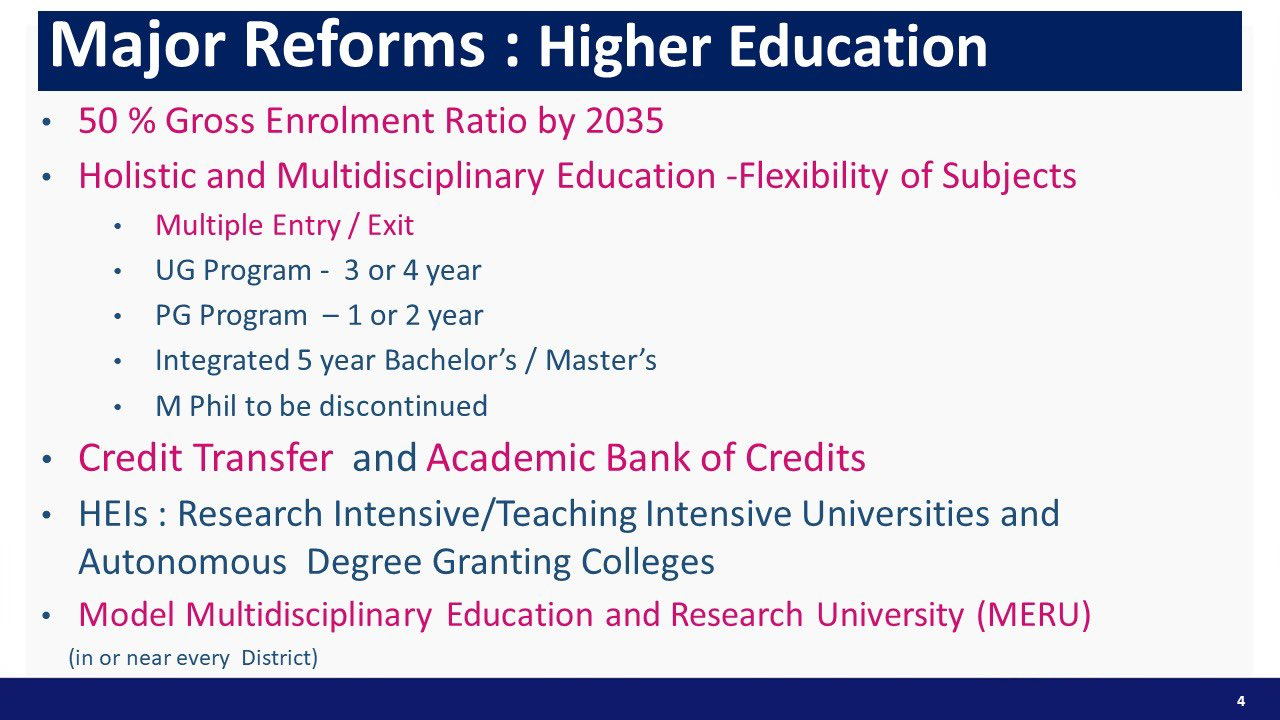
 Amit Khare Higher Education Secretary said that "following the new education policy and reforms, we will achieve 50% Gross Enrollment Ratio (GER) by 2035."
"Other features include graded academic, administrative and financial autonomy of institutions and a single regulator for all higher education, working under a self-disclosure based transparent system for approvals in place of numerous 'inspections," the Government of India said.
Amit Khare Higher Education Secretary said that "following the new education policy and reforms, we will achieve 50% Gross Enrollment Ratio (GER) by 2035."
"Other features include graded academic, administrative and financial autonomy of institutions and a single regulator for all higher education, working under a self-disclosure based transparent system for approvals in place of numerous 'inspections," the Government of India said.
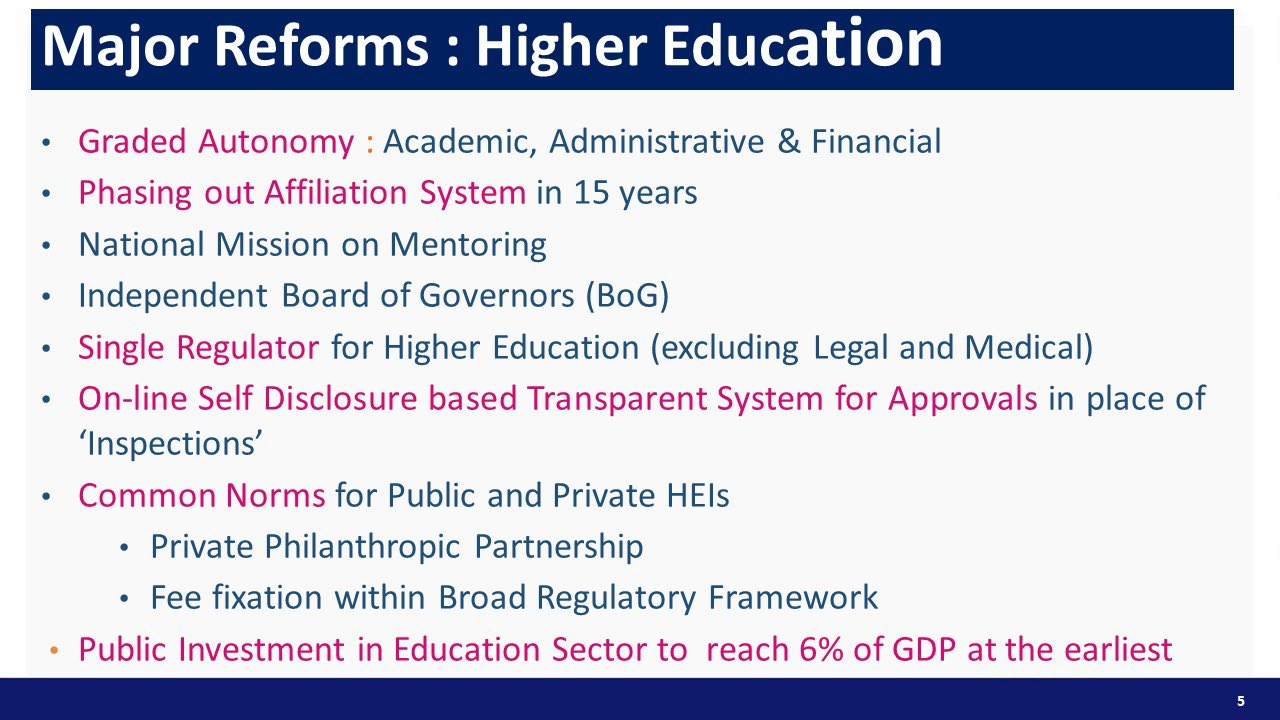 Meanwhile, the E-courses will be developed in regional languages; virtual labs will be developed and a National Educational Technology Forum (NETF) is being created.
Meanwhile, the E-courses will be developed in regional languages; virtual labs will be developed and a National Educational Technology Forum (NETF) is being created.
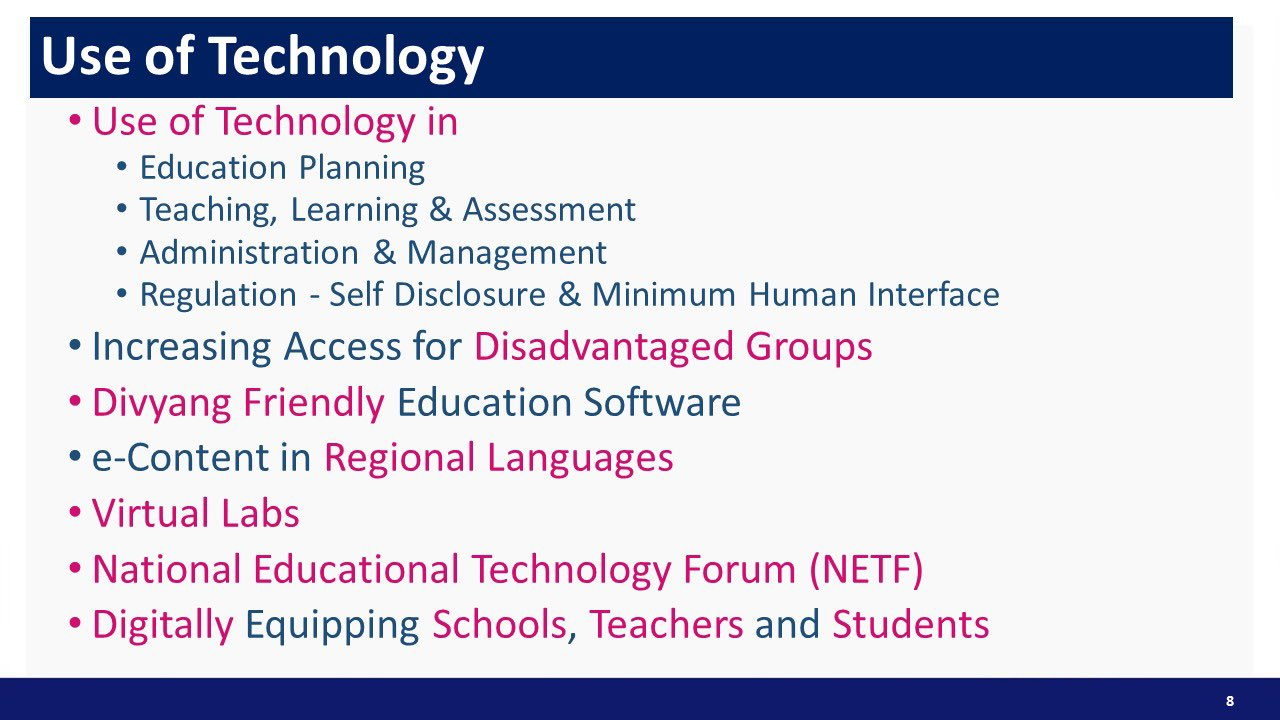 Amit Khare Higher Education Secretary stared that there are over 45,000 affiliated colleges in our country. "Under Graded Autonomy, Academic, Administrative & Financial Autonomy will be given to colleges, on the basis of the status of their accreditation," he added.
Also Read | Ministry of Human Resource and Development (MHRD) rename
"As on date, we have different norms for deemed universities, central universities, for different individual standalone institutions. New Education Policy says that for reasons of quality, norms will be same for all & not as per ownership," Khare said.
Amit Khare Higher Education Secretary stared that there are over 45,000 affiliated colleges in our country. "Under Graded Autonomy, Academic, Administrative & Financial Autonomy will be given to colleges, on the basis of the status of their accreditation," he added.
Also Read | Ministry of Human Resource and Development (MHRD) rename
"As on date, we have different norms for deemed universities, central universities, for different individual standalone institutions. New Education Policy says that for reasons of quality, norms will be same for all & not as per ownership," Khare said.
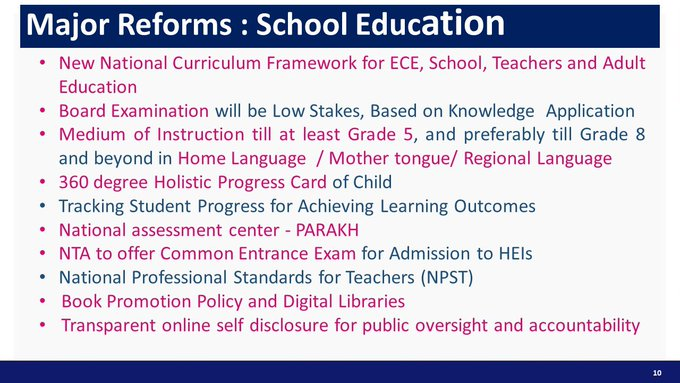 The Board exams will be low stakes and test actual knowledge instead of rote learning; Mother tongue to be a medium of instruction till 5th grade; report cards will be a comprehensive report on skills and capabilities instead of just marks and statements, the govt. of India said.
The Board exams will be low stakes and test actual knowledge instead of rote learning; Mother tongue to be a medium of instruction till 5th grade; report cards will be a comprehensive report on skills and capabilities instead of just marks and statements, the govt. of India said.
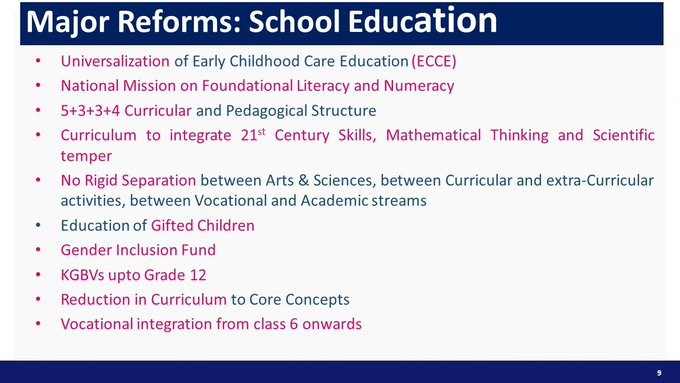 The national mission to focus on basic literacy and basic numeracy; major changes in the pedagogical structure of curriculum with no rigid separation between streams; all separations between vocational and academic and curricular and extra-curricular will also be removed.
The national mission to focus on basic literacy and basic numeracy; major changes in the pedagogical structure of curriculum with no rigid separation between streams; all separations between vocational and academic and curricular and extra-curricular will also be removed.


 Meanwhile, Union Minister Harsimrat Kaur Badal on Wednesday said that "With the Cabinet chaired by PM Shri Narendra Modi Ji today approving new National Education Policy, India gets the much-needed education reforms after a gap of 34 years. Congratulations to Ramesh Nishank Ji on this momentous occasion."
-PTC News
Meanwhile, Union Minister Harsimrat Kaur Badal on Wednesday said that "With the Cabinet chaired by PM Shri Narendra Modi Ji today approving new National Education Policy, India gets the much-needed education reforms after a gap of 34 years. Congratulations to Ramesh Nishank Ji on this momentous occasion."
-PTC News
